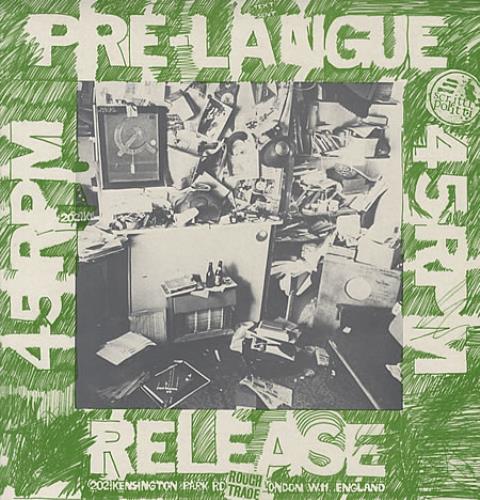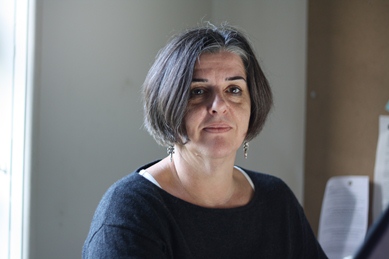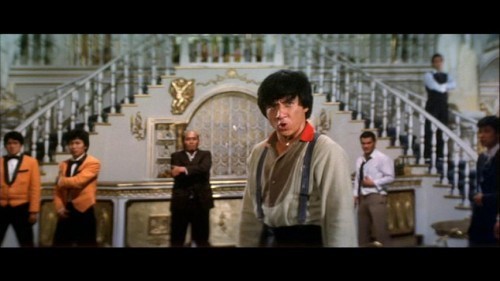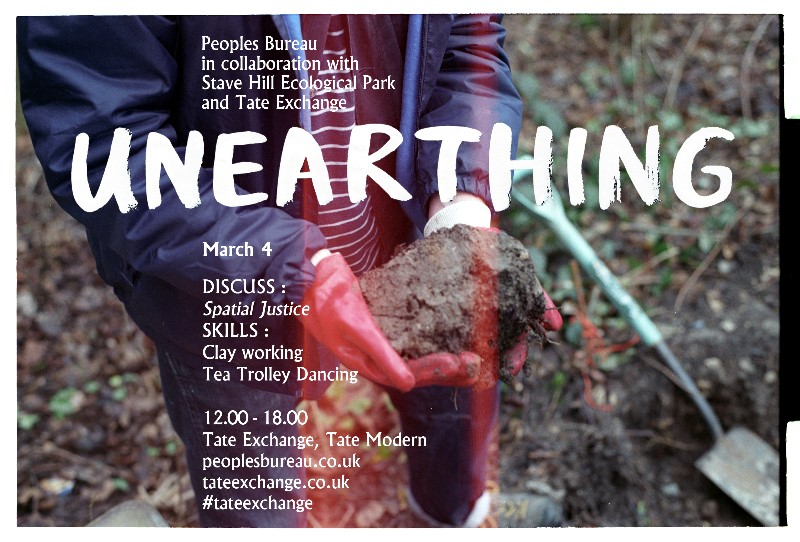Posts from March 2017

Wednesday 5th April, 5.00 – 6.30 pm
Room 206, University of Westminster, 32-38 Wells Street, London W1T 3UW
Post-Punk, Politics and Pleasure
David Wilkinson (Manchester Metropolitan University)
As the Sex Pistols were breaking up, Britain was entering a new era. Punk’s filth and fury had burned brightly and briefly; soon a new underground offered a more sustained and constructive challenge. David Wilkinson’s new book Post-Punk, Politics and Pleasure in Britain situates post-punk in its historical and political context, showing how residual flickers of utopianism illuminated the movement’s monochrome gloom. The book also locates post-punk in the crossfire of a key ideological struggle of the era: a battle over pleasure and freedom between emerging Thatcherism and libertarian, feminist and countercultural movements dating back to the post-war New Left. Tracing these tensions through a series of case studies on bands such as Scritti Politti, The Fall and the Slits, the book concludes by examining how the struggles of post-punk resonate down to the present.
The seminar will be followed by our last visit of the semester to the Green Man pub … All welcome!

Friday 28th April 2017, 5.30 pm
Fyvie Hall, University of Westminster, 32-38 Wells Street, London W1T 3UW
Language and the Problem of Female Authority
Professor Deborah Cameron (Worcester College, Oxford)
The inaugural public lecture hosted by the Westminster Forum for Language and Linguistics.
Professor Cameron is Professor of Language and Communication and a Fellow of Worcester College at Oxford University. Her research interests are Language, gender and sexuality; language attitudes/ideologies and ‘verbal hygiene’; discourse analysis; language and globalization. She is also actively involved in communicating with a wider audience about language and linguistic research. Parts of her book The Myth of Mars and Venus were serialized in The Guardian newspaper and she has contributed to numerous BBC radio programmes, including Woman’s Hour, Word of Mouth, Thinking Allowed and Fry’s English Delight.
Reserve your free ticket here: https://www.eventbrite.co.uk/e/language-and-the-problem-of-female-authority-tickets-33205721206

March 23rd 2017, 6.30 – 8.00 pm
Carroll / Fletcher, 56-57 Eastcastle Street, London W1W 8EQ
Technostalgia Launch Event, with Alison Craighead in Conversation
To mark the opening of the Moving Museum’s new platform of web-based anthologies, Alison Craighead of Thomson & Craighead and the IMCC will be in discussion with Professor Beryl Graham, Professor of New Media Art at University of Sunderland, and co-founder and editor of CRUMB at Carroll / Fletcher in London. Moderated by Carroll / Fletcher Associate Director Coline Milliard.
Technostalgia, the inaugural anthology edited by Coline Milliard, will go live next week and explore the aesthetics of early technologies, their legacy and impact, as well as their fetishization and appropriation in a contemporary artistic context. Participating artists include Cory Arcangel, Constant Dullaart, Rafael Lozano-Hemmer, Peter Luining, Lorna Mills, Paper Rad, Mark Richards, Gustavo Romano, Evan Roth, Paul Slocum, Thomson & Craighead, and Ubermorgen.
The event will be live streamed by this is tomorrow
Please RSVP@themovingmuseum.com

Wednesday 8th March, 5.00 – 7.00
Room 206, University of Westminster, 32-38 Wells Street, London W1T
Jackie Chan vs. Walter Benjamin: Postcolonial ‘utopias of the body’ in kung fu comedy cinema
Luke White (Middlesex University)
In the late 1970s, Hong Kong martial arts cinema took a turn from the tragic-heroic register to that of comedy, propelling Jackie Chan – the genre’s pioneering and most successful kung fu comedian – to first local and regional, and then global, superstardom. Many critics have read the rise of the kung fu comedy, which coincided with a shift away from the militant nationalist or anti-colonial themes of movies such as Bruce Lee’s Fist of Fury (1972), as turning away from politics, reflecting the waning of the turbulence of the 1960s and the new accommodation to a globalised neoliberal order. The research project from this paper derives, however, explores the performing body as a key site where a continuing politics is played out.
The paper analyses Jackie Chan’s performance style in the film Project A (1983) in relation to Walter Benjamin’s readings of the slapstick violence of Mickey Mouse cartoons and American silent-era performers such as Buster Keaton and Charlie Chaplin. The ‘utopia of the body’ that Benjamin discovered in these both offered a critique of capitalist modernity and also promised to fulfil the emancipatory potential lodged within it. The paper sets out to rethink the relevance of Benjamin’s arguments to the specifically postcolonial situation of Chan’s filmic production in 1980s Hong Kong, and to consider what kind of a response (both accommodated and also subtly subversive) his performances might constitute.
All welcome! Followed by the usual drinks in the Green Man.

Saturday 4th March, 12.00 – 6.00 pm
Tate Modern, London
Spatial Justice Workshop
Friend of the IMCC, Andreas Philippopoulos-Mihalopoulos, is playing the leading part in a great day’s events at the Tate this Saturday, organised by the Westminster Law & Theory Lab with Tate Exchange and People’s Bureau. Free to all – including tea and cake!
Philippopoulos-Mihalopoulos defines spatial justice as the conflict that emerges when one body wants to move into the space of another body. This opens up questions of symbiosis, creative confluence and regeneration, but also issues of power imbalances. The event hopes to explore ideas about the role of developers, art institutions and artists in dealing with issues of spatial justice and productive ways of reflecting them in their practices. The programme includes a Clay Workshop and Tea Trolley Dances, as well as an interview and discussion with Andreas.


The Institute for Modern and Contemporary Culture
University of Westminster Department of English, Linguistics and Cultural Studies
32-38 Wells Street, London W1T 3UW. United Kingdom.
